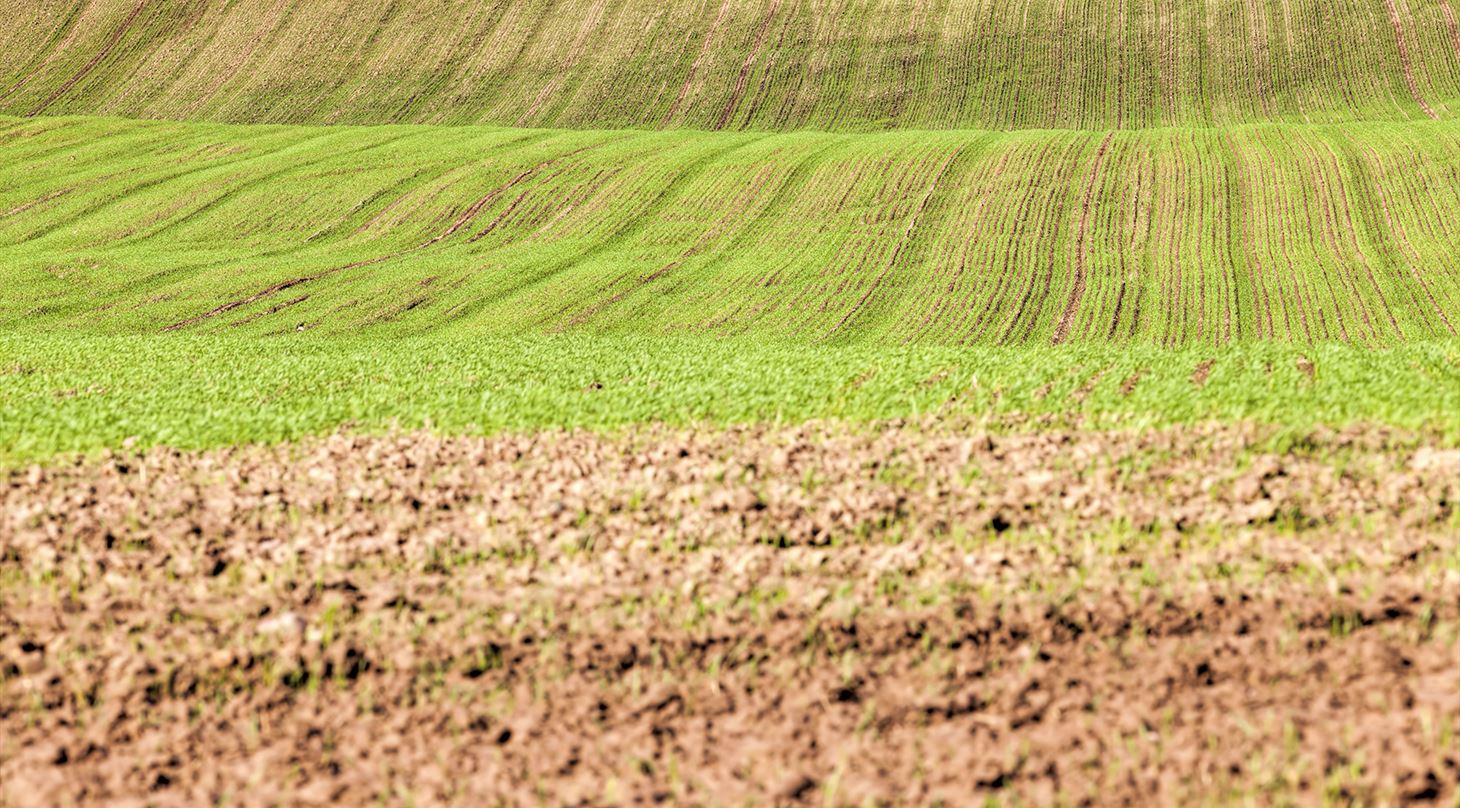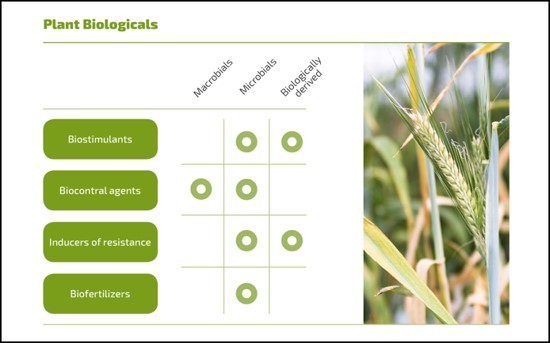
Climate Friendly Plant Biologicals
 In Danish
In Danish
Project period: 2023–2026
The EU's Green Deal strategy has a goal to reduce the use of chemical pesticides and fertilizers in agriculture by 50% and 20%, respectively, by 2030. However, phasing out synthetic products is not without risks and may result in an indirect negative climate impact due to reduced crop yields and losses caused by pests and diseases. Therefore, alternative solutions are crucial in the transition towards climate-friendly and highly productive agriculture—and plant biologicals (PB) play a key role in this transformation.
Infographics on plant biologicals:

The traditional trial protocols used for testing agrochemicals in the field are not optimized for PBs, as these products are often more sensitive to varying field and climatic conditions under which they are tested. Additionally, traditional guidelines are primarily focused on collecting data related to evaluating product effectiveness in controlling pests and diseases or increasing nutrient content and growth. Therefore, it is necessary to develop new testing methods and protocols that focus on identifying critical and optimal parameters for product stability and performance, as well as methods for determining the multidimensional effects of PBs.
Project Goals
The overall goal is to strengthen the scientific foundation for evaluating PB stability, mode of action, safety as biocontrol agents, and their effects on crop productivity, the environment, and climate. This will be achieved by establishing science-based experimental designs and protocols that enable statistical documentation of PB effects under varying environmental conditions.
Specific goals include:
- Developing a paradigm and case studies for experimental design, protocols, and statistical analyses/models that support the integration of multiple data types from field trials to generate scientific documentation of PB efficacy on crop yield.
- Developing models to estimate the effects of PBs on climate, the environment, and soil microbial biodiversity.
Activities
- Developing experimental designs and protocols tailored to PBs.
- Developing computational models to estimate impacts on climate, biodiversity, and the environment.
- Conducting decentralized field trials.
- Modeling and data analysis.
Participants
- Danish Technological Institute
- Aarhus University
- University of Copenhagen
- FMC
- Novonesis
- Plant Biologicals Network
Climate Friendly Plant Biologicals is funded by the Innovation Fund Denmark through the Innomission 3 partnership AgriFoodTure.